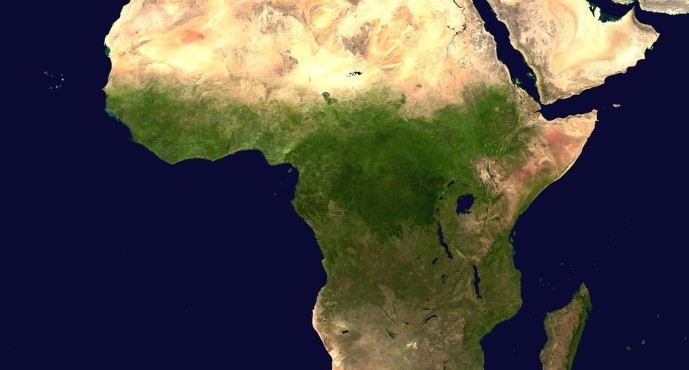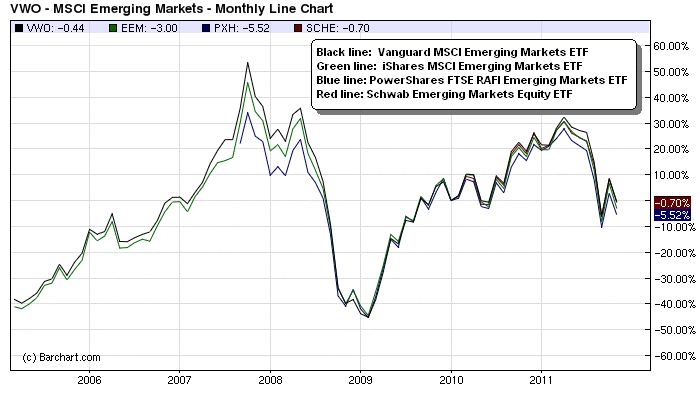Blurring the lines between emerging frontier and developed market stocks Get Latest
Post on: 1 Октябрь, 2015 No Comment

Mark Mobius
Executive Chairman
Templeton Emerging Markets Group
There has been some convergence in terms of how one might classify emerging-, frontier- and developed-market companiesand how they might fit into investors portfolios. Recently, we have noted an increase in liquidity and transparency of many frontier-market stocks (the smaller and lesser-developed subset of emerging markets). We have encountered increased numbers of businesses quoted on developed-market exchanges that have a majority of their business operations, sales or earnings generated in emerging or frontier markets, and at the same time, we have also seen growing numbers of emerging-market companies acquiring businesses in developed markets, becoming true multinationals. In our opinion, suitable frontier- and even developed-market stocks can be used to add potential value to what investors might traditionally classify as emerging-market portfolios.
Market Convergence
Frontier markets have been of particular interest to us in recent years, as we perceive many of these markets as having good economic growth potential. Government reform efforts also present the potential for both earnings growth and revaluation for frontier-market companies.
Some have argued against investing in frontier markets because of their limited size and poor liquidity. We have not found these concerns to be justified in all cases. An overall market capitalization for frontier markets in the region of US$1.8 trillion[1] and daily turnover of US$3.6 billion[2] appear to us to be a very adequate opportunity. Considerable numbers of individual stocks sit within frontier markets, yet some have capitalizations and trading volumes that would place them comfortably on par with some emerging-market peers. Some banks in Pakistan and Nigeria, a telecommunications company in Argentina, and an oil and gas company in Central Asia come to mind. Moreover, we should note that, within emerging markets themselves, improving liquidity on exchanges in countries such as India means that stocks that we might once have regarded as appropriate only for specialist smaller-company portfolios now trade in sufficient volumes to be included within more traditional global emerging-market portfolios.
The recent activities of the emerging- and frontier-market index compiler Morgan Stanley Capital International (MSCI) give some force to our convergence argument. In May 2014, MSCI upgraded Qatar and the United Arab Emirates to emerging markets from frontier, recognizing improvements in liquidity and foreign shareholder rights in these markets.[3] These countries had represented a significant portion of the overall capitalization of the MSCI Frontier Markets Index at the time of the change. Another eight frontier markets are also under consideration for eventual inclusion in wider MSCI index families. Most of these eight countries are quite small at the present time, but one country, Saudi Arabia, has a large market with a market capitalization of around US$600 billion,[4] placing it on a par with Mexico and South Africa. We believe the Saudis recent announcement of plans for foreign investors to be granted direct access to its market has sharply increased the likelihood of Saudi Arabias inclusion in a broader MSCI index within the next few years.
Opening the Borders of the Investable Emerging-Markets Universe
For us, however, the emerging- and frontier-markets universe stretches well beyond the confines of a traditional benchmark index, and we seek attractively valued stocks in just about any developing country where we see potential. The lines are not always so clear, depending on the metrics used in the classifications. For example, South Korea is currently classified by one index provider as emerging and another as developed. And in 2013, Greece fell into MSCIs emerging- market ranks from developed, although Greeces gross national income per capita remains well in excess of the World Banks threshold to be called high income and many companies there do much of their business in developed markets. [5] Perhaps Greece is not on par with its (former) developed market brethren on many levels, but one could also argue it doesnt possess many of the characteristics that other emerging markets generally possessincluding attractive growth potential, a youthful population and modest levels of government debt as a percentage of GDP. While we welcome the opportunity to invest in Greece as an emerging market and are seeking potential opportunities there, its difficult to categorize and falls into a grey area for us.
Tapping Emerging Markets Potential
Sometimes a country might not have a securities exchange, sufficient liquidity or adequate shareholder protection to support direct investment, but exposure to its growth potential and its consumer base is available through businesses quoted on developed-market exchanges that do business in these emerging and frontier markets. Investments of this nature can provide access to the growth available in countries such as Georgia, Mozambique or Turkmenistan, to name a few. We might, for example, invest in a consumer goods company located and listed in the United States or United Kingdom, but whose profits are derived in large part from consumers located outside its borders, in countries like the aforementioned.

Furthermore, several developed-market companies, some of them household names, have a changing geographical focus that renders them, for all intents and purposes, emerging-market stocks. As investors unfettered by index restrictions, we believe these stocks deserve consideration in emerging-markets portfolios.
We remain convinced that the boundaries of emerging-, frontier- and developed-market stocks will continue to converge and offer investors significant potential opportunities in their portfoliosno matter how they are labeledin the years to come.
Dr. Mobiuss comments, opinions and analyses are his personal views and are intended to be for informational purposes and general interest only and should not be construed as individual investment advice or a recommendation or solicitation to buy, sell or hold any security or to adopt any investment strategy. It does not constitute legal or tax advice. The information provided in this material is rendered as at publication date and may change without notice and it is not intended as a complete analysis of every material fact regarding any country, region market or investment.
Data from third party sources may have been used in the preparation of this material and Franklin Templeton Investments (FTI) has not independently verified, validated or audited such data. FTI accepts no liability whatsoever for any loss arising from use of this information and reliance upon the comments opinions and analyses in the material is at the sole discretion of the user. Products, services and information may not be available in all jurisdictions and are offered by FTI affiliates and/or their distributors as local laws and regulation permits. Please consult your own professional adviser for further information on availability of products and services in your jurisdiction.
Important Legal Information
All investments involve risks, including possible loss of principal. Foreign securities involve special risks, including currency fluctuations and economic and political uncertainties. Investments in emerging markets, of which frontier markets are a subset, involve heightened risks related to the same factors, in addition to those associated with these markets smaller size, lesser liquidity and lack of established legal, political, business and social frameworks to support securities markets. Because these frameworks are typically even less developed in frontier markets, as well as various factors
[1] Source: Bloomberg LP. All data as of August 29, 2014.














